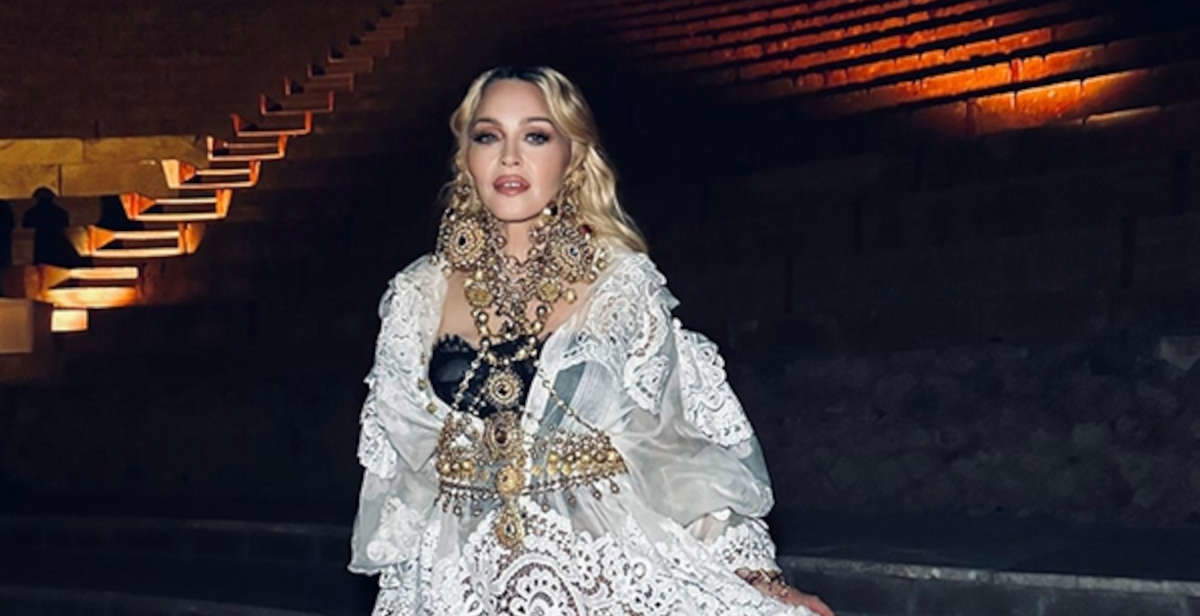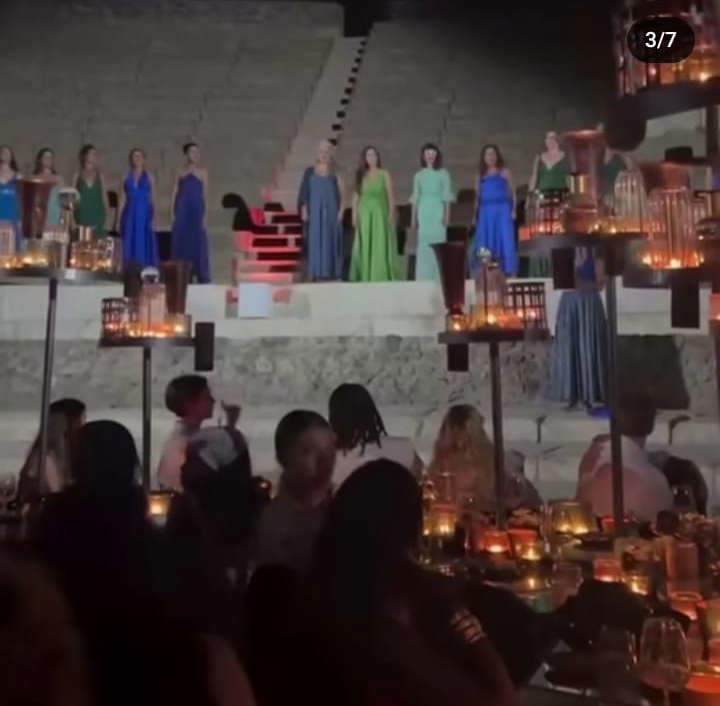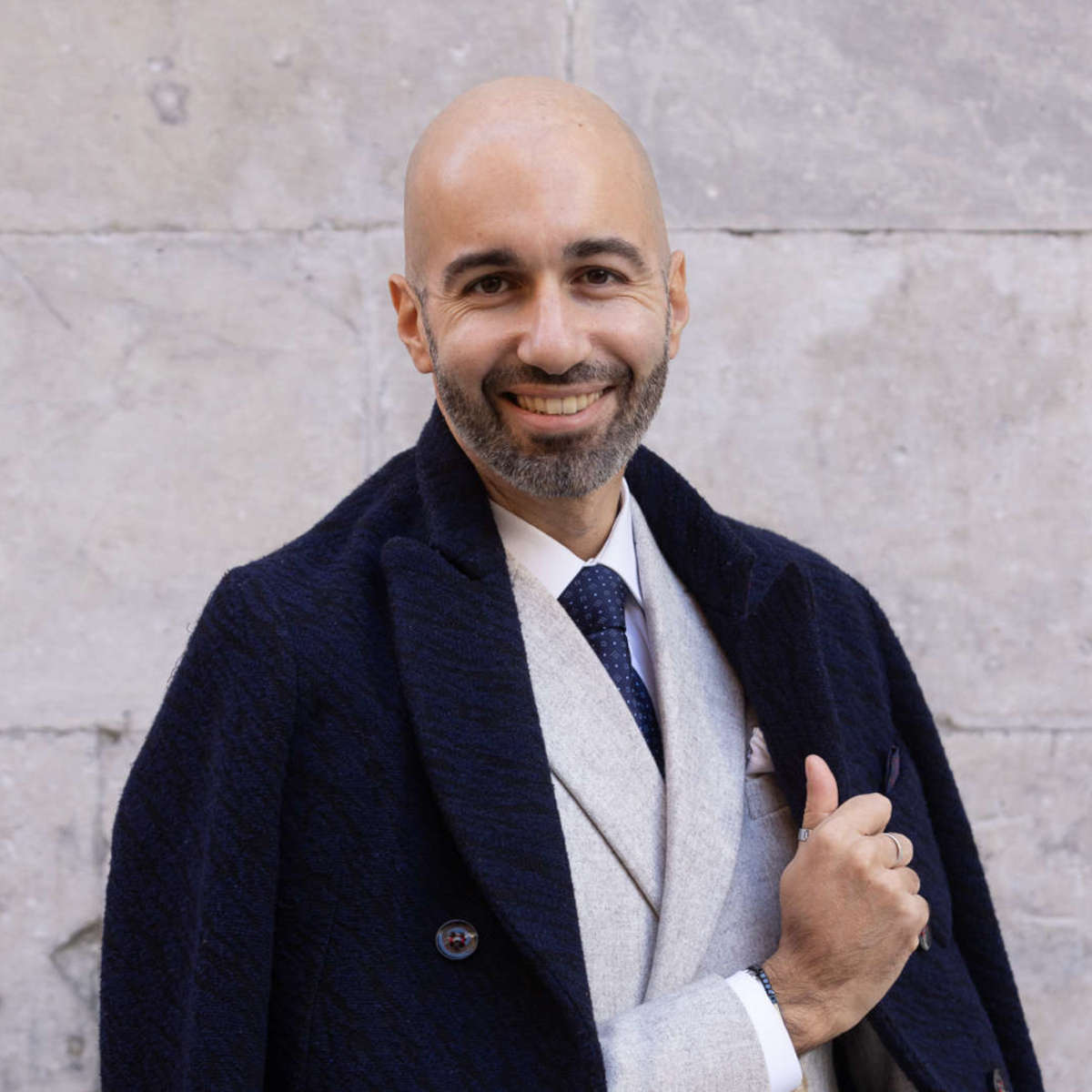First, a premise: I see no problem if Madonna wants to celebrate her birthday by throwing a party in the ruins of Pompeii. If anything, I remain perplexed by the attitude with which the Archaeological Park of Pompeii has handled the matter: it seems almost as if they are embarrassed to inform the public that on a given day, at a given time, there will be Madonna’s party in Pompeii, which will consist of this, that and the other activity, in exchange for a donation of tot euro.
But let’s proceed in order, and start from the general to get to the particular. I believe that the idea of a private individual wanting to organize an event inside a museum or an archaeological site is not a big deal. Provided, of course, that the party does not hinder those who want to visit the site during normal opening hours and is authorized in exchange for a lavish financial reward granted to the site by the organizer (of course, I think it is not necessary to specify that the birthday boy and guests are required to leave the facilities exactly as they found them upon arrival: it is implied that the site should not suffer the slightest damage). Is it meretriciousness, commodification, debasement of a public good? No, if it does not hinder the activities of the institute and if it guarantees extraordinary resources to finance them. Is it a scandal just because Madonna can gozzovigliare for a couple of hours inside a domus in Pompeii and you can’t? In Italy there are thousands of public institutions that offer their spaces for rent to anyone who wants to rent them, after which if you are Madonna you can afford the Teatro Grande in Pompeii, if you are the engineer Pippo Brambilla from Cesano Maderno on vacation in Versilia then you will be content with the cloister of Sant’Agostino in Pietrasanta for just under two thousand euros. If, however, we reason in principle (and therefore no to private individuals renting public cultural property), then the possibility should be precluded to everyone: indeed, I the citizen, I the tourist, I the visitor am perhaps more harmed by the association of the Friends of the Opera of Valdicastello, which for its annual festival rents the cloister of Sant’Agostino for a whole day (and precludes me from visiting it), than by Madonna’s nightly sbicchierata in Pompeii.The point is that the degree of indignation of those who participate in the debate is directly proportional to the size of the renter’s 730: if you are Madonna and you celebrate your birthday in Pompeii, you will suffer the reprimands of thousands of defenders of the common good who cry out in unified social against the sacrilegious renting of public property. If you are the Order of Engineers of Florence and you organize an invitation-only, closed-numbered conference inside the Salone dei Cinquecento during normal public opening hours, you can rest assured that no one will arrive to shriek against the “private exploitation of cultural heritage,” the “enjoyment of the few,” the “narrow circles of the privileged,” and assorted catchphrases.
Where then is the scandal? The scandal, when it comes to access to heritage, is not the late-night festivities of an international celebrity: it is more scandalous, for example, that in Italy there are still no pricing policies that allow entrance to museums even for those who have difficulty paying (in serious countries there are many museums that offer free admission or large reductions to the unemployed, for example: we still do not, despite the fact that our magazine has been stressing for years that this possibility is not granted in Italy). The scandal is that in a country with a museum landscape as large, diverse, complex and expensive as ours, our institutions do too little to make private support for museums structural. Understandable, however, if the attitude of most of our insiders is ’give it to the private sector.’ And it is surely because of this hunt for the private sector that, in order to justify Madonna’s presence, the press office of the Pompeii Archaeological Park has been performing equestrian circus acts in an attempt not to offend the sensibilities of the cultural heritage moral police. The problem is that the attempt was not enough, since, despite the strict secrecy about the event (fortunately Madonna spared us Veralab-style ostentations via Instagram at the Pinacoteca di Brera), the news nevertheless leaked out, complete with photos in the day after.


So first there was the denial: a press note to call the rumors about the “mega-party” (whatever that means) of “an international celebrity” (never named) with “500 guests in the excavations of Pompeii” “baseless news.” Sure, there were no Great Gatsby-style revelry and the guests were not numbered in the hundreds, but Madonna’s was not even a courtesy visit: why couldn’t the Pompeii Archaeological Park have been clear from the outset and alerted the public that Madonna would be celebrating her birthday in the excavations with guests attovagliated in front of a lavish buffet, all intent on watching performances of music and folk dances? Why is it that when an excavation is done and a couple of bones are discovered, kilometer-long communiqués flourish, and instead for the arrival in Pompeii of one of the longest-lived international pop stars there was first denial and then downplaying?
On Saturday, after the event was over, the Park limited itself to issuing a communiqué all focused on the meeting between Madonna and the children of the “Dream of Flying” project, the one financed by the singer with the sum of 250,000 euros, and for everything else a half-line mention: “artistic performances and a reception at the conclusion of the itinerary.” And director Gabriel Zuchtriegel, interviewed by Tg3, even went so far as to declare that “we are not talking about a private event, but we are talking about an encounter between the community, between young people, and one of the greatest artists of our time.” But what is the problem with having to admit that a private individual celebrated a birthday in Pompeii and paid himself back with a donation? The fact that the whole thing was organized quickly cannot be an excuse: we are not talking about an archaeological discovery in need of study and investigation. We are talking about a birthday party: is it so complicated to inform the public about all the details while having one week to do so? It is a simple matter of transparency: the Pompeii Archaeological Park is a public entity, and the public has a full right to know how its spaces are being used. That is also what we tried to ask on Saturday, both by phone and by email, from the Park’s press office, although we have not received a response at the moment: we asked why it was initially said that rumors about the event were “unsubstantiated news” when in fact there was an event, we asked how much it cost to Pompeii Park for the evening in terms of staff overtime, security, lighting expenses and so on, we asked if the closing of the Grand Theater from 4 p.m. until the site was closed depended on Madonna’s celebration, what time theevent and at what time it ended, what the “artistic performances” referred to in the memo circulated Saturday morning consisted of, how many staff (including employees, contractors and outside consultants) of the Park were involved to ensure the success of the event, what was the Park’s actual income minus the costs incurred, how many were Madonna’s guests, and what workers had access to the excavations between catering staff, security, sound technicians, dance troupe. The bare minimum.
Now, we read on the Park’s website that the press office operates only Monday through Friday, 9 a.m. to 5 p.m. Well, we can grant that the Pompeii press office does not answer calls and emails on Saturdays and Sundays when on Friday night there was an event involving one of the world’s most famous singers that produced a news story that also ended up in the headlines of the evening news. We trust the answers when this holiday weekend of well-deserved rest for Park employees ends. But that of prior information should become a practice: anyway, the outraged who vent via stories come even when you try to minimize. Then we might as well have an open discussion.

The author of this article: Federico Giannini
Nato a Massa nel 1986, si è laureato nel 2010 in Informatica Umanistica all’Università di Pisa. Nel 2009 ha iniziato a lavorare nel settore della comunicazione su web, con particolare riferimento alla comunicazione per i beni culturali. Nel 2017 ha fondato con Ilaria Baratta la rivista Finestre sull’Arte. Dalla fondazione è direttore responsabile della rivista. Nel 2025 ha scritto il libro Vero, Falso, Fake. Credenze, errori e falsità nel mondo dell'arte (Giunti editore). Collabora e ha collaborato con diverse riviste, tra cui Art e Dossier e Left, e per la televisione è stato autore del documentario Le mani dell’arte (Rai 5) ed è stato tra i presentatori del programma Dorian – L’arte non invecchia (Rai 5). Al suo attivo anche docenze in materia di giornalismo culturale all'Università di Genova e all'Ordine dei Giornalisti, inoltre partecipa regolarmente come relatore e moderatore su temi di arte e cultura a numerosi convegni (tra gli altri: Lu.Bec. Lucca Beni Culturali, Ro.Me Exhibition, Con-Vivere Festival, TTG Travel Experience).
Warning: the translation into English of the original Italian article was created using automatic tools. We undertake to review all articles, but we do not guarantee the total absence of inaccuracies in the translation due to the program. You can find the original by clicking on the ITA button. If you find any mistake,please contact us.